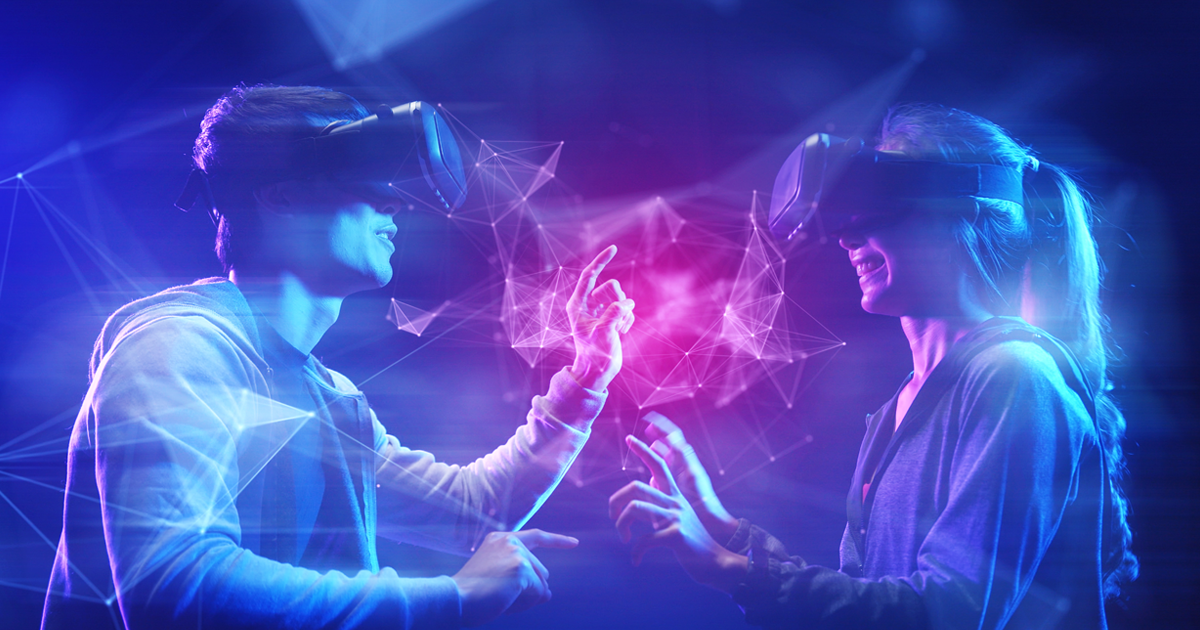Facebook was launched in 2004 as a social media website to connect Harvard students with one another. Today, Meta (formerly known as Facebook) is among the ten world’s most valuable companies, with a market cap of $923.26 B. Its apps, Facebook, Messenger, Instagram, and WhatsApp, are used by over 3 billion people each month.
With a vision to create a digital world that’s the next generation of the internet, Facebook recently changed its name to Meta. According to Mark Zuckerberg, CEO of Meta Platforms, Meta represents the idea that there is always more to build. With Meta rebranding, Facebook’s engineers hope to apply what they learned from the platform to create the next generation of the digital universe. Meta is helping to build the metaverse where people can socialize, learn, play, and connect in 3D.
The changes emphasize user data that could be considered sensitive or controversial. But what does this mean for advertising? This blog post details Facebook’s new advertising targeting system and the meaning behind forthcoming changes for advertisers and online marketers.
The Metaverse
Subscribe to our newsletter
At the end of October 2021, the Facebook company introduced a significant rebranding change, as it has become Meta.
Official sources say that changes won’t affect the user experience in any way. The Facebook application and website will remain the same, and the same goes for Instagram and WhatsApp. Therefore, there’s no need to worry about that. Marketers will continue to advertise within the Facebook Ads, using the same channels and formats. In the long run, the metaverse potentially offers opportunities we haven’t seen before by implementing marketing strategies in a virtual environment using AR and VR technologies.
After Meta rebranding in 2021, Mark Zuckerberg announced futuristic plans for creating a digital world where you’ll be able to do almost anything you can imagine.
Meta will be divided into the Family of Apps and the Reality Labs. Its goal is to bring the metaverse to life, helping people connect and grow businesses. People will play, shop, and learn in a vast, interconnected space in the metaverse.
The next big challenge for Meta is the development of Horizon Marketplace, which is a suite of tools that will enable people to create and interact in virtual reality. Under the Horizon umbrella, Meta will also launch Horizon Worlds for gaming, Horizon Work for collaboration, Horizon Marketplace for buying and selling goods, and Horizon Home for personal spaces.
You will be able to attend concerts, travel to distant cities, and see natural wonders. You’ll shop for virtual clothes and goods that will exist in the virtual worlds.
How Facebook Ads Worked Before Meta Rebranding
The advantage of Facebook Ads lies in the platform’s ability to segment users by demographics and interest-based factors, allowing marketers to target groups of people precisely. Facebook automatically shows the ads to people most likely to find them relevant. Advertisers and marketers can further target the ad delivery with three audience selection tools: core audiences, custom audiences, and lookalike audiences.
Facebook gathers information from users through their demographics, behavior, and interests. This includes what kind of content they are most likely to follow, share, like, or comment on, and it’s called Detailed Targeting. It allows marketers to customize their advertising campaigns. The options may be based on ads they click, pages they engage with, activities people engage in, travel preferences, demographics, the mobile device they use, and the speed of their network connection.

New Changes in Targeting (Meta is removing options for targeted ads based on sensitive information)
From January 19, 2022, Meta will remove some Detailed Targeting options related to politically or culturally polarising topics such as health, political affiliation, race or ethnicity, religion, and sexual orientation. Because of the concerns about the abuse of targeting options, it is limiting more specific targeting. The company received advice from various civil rights experts and policymakers about the abuse of available targeting options.
According to Graham Mudd, VP, Ads & Business Product Marketing at Facebook, their decision to remove the Detailed Targeting options wasn’t easy. They know it may negatively impact some businesses and organizations. But, they feel confident to evolve their ads system to meet the needs of everyone they serve while continuing to support one of the best things about their platforms—helping people connect with and discover the businesses and organizations they care about.
Existing ad sets with affected targeting options will run until March 17, 2022. But they may require you to update their targeting selections. If they are used for exclusion purposes, they will be removed.
Despite the removal of these sensitive categories, the core functions of Detailed Targeting remain the same. Even though they may no longer be able to reach some of their target audience with targeted audiences, businesses and non-profit organizations can still use Engagement Custom Audiences to reach them.
Business Opportunities in The Metaverse
The metaverse will be incredibly beneficial for businesses, as it will allow them to compete in the new economy. It can be the biggest opportunity for companies since the invention of the internet! Although people will still experience the metaverse through 2D apps, businesses will need to focus on what they’re doing right now to grow in the future.
The rise of digital commerce will allow people to connect in a new way and unlock new opportunities for buyers and sellers. For instance, imagine buying physical products in a virtual world. Virtual fashion would allow people to wear their favorite brands’ clothes, just as they would in real life.
While the new area of digital life is still in its infancy, the fashion and clothing industry has already started to take off in the metaverse. CEEK City, the virtual world’s largest community, recently announced that the H&M brand might also open a store in the metaverse.

Source: Facebook
Virtual events
We will be able to host an event in the metaverse where people can join in real life and buy a ticket. People will see an entirely different 3D environment in high-definition and 360 degrees while wearing virtual reality (VR) glasses. They will interact with other attendees’ avatars (your virtual self) and the environment by wearing haptic gloves (or game controllers). One of the main advantages of the metaverse is that it will allow event and conference planners to create an unlimited environmental design—events with a variety of rooms and meeting places. Imagine hosting an event on the moon. In the metaverse, you will be able to do so!

Source: Facebook
Since the start of the global pandemic, we’ve been living in a hybrid world. We communicate and connect online more than ever. Current examples of how augmented reality can connect the physical world with the digital world are excellent references to how we’ll use this technology in the future.
There are many examples of how AR allows people to virtually drop objects in their homes or try makeup using their Facebook feed. Regardless of sector, there will be use cases for businesses that seek to leverage mixed reality and physical-world experiences.
Some advertising executives believe that the goal should be to create something that’s both real and fun in the metaverse. That means brands shouldn’t make what looks like advertising as we know it. What will come across as real in the virtual world will be different. In the metaverse, brands have to balance being present and being authentic. Also, they should provide experiences that people actually want.
Conclusion
With Meta rebranding, advertising is expected to play a more prominent role in Meta’s ecosystem than on today’s Facebook platform. Although Facebook’s platform focuses more on user data, Meta’s personalized advertising system will use it less.
In the metaverse, creators are also likely to include both businesses and individuals. Meta plans on creating digital spaces where creators can sell their products and experiences. Early influencers and creators may get exclusive rooms and one-offs in the metaverse.
The metaverse’s development will take a long time, and it will involve gathering user and business feedback. For the next generation of creators, Meta has launched a $150 million program to help them develop immersive learning content.
Meta has also launched a series of training programs to help creators get the skills they need to thrive in the future. People already looking into AR and VR will be better positioned to participate in the metaverse than those who haven’t started yet.
Despite the lack of significant changes in the metaverse at the moment, it’s still a good idea for advertisers to get in early and prepare for the future. Doing so will allow them to capitalize on the opportunities that will come along with the Meta rebranding!
About the authors

Aleksandra Ivanić is a Facebook Ads Specialist at Sellers Alley. As a PPC Specialist, she has experience building, maintaining, and running successful digital marketing campaigns. Aleksandra is skilled at creating and implementing client-focused, successful campaigns to improve brand awareness and presence. She has a sound knowledge of running various campaigns, from the standard Video and Image to Remarketing.

Nadja Molnar is a Facebook Ads Specialist and she recently joined Sellers Alley’s team. She is experienced in creating, maintaining, and optimizing digital advertising campaigns. Nadja has a methodological approach in order to develop brand awareness, generate inbound traffic, and cultivate leads and sales.


